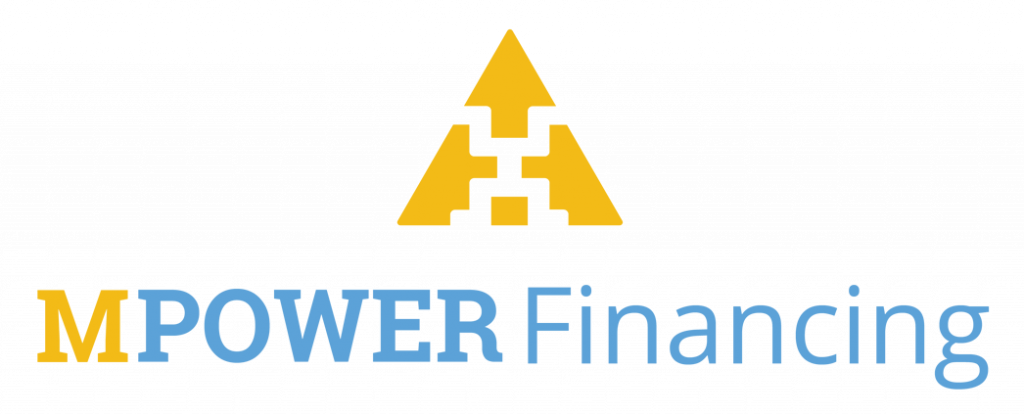Can I Get a Student Loan Without Asking My Parents for Collateral?

One of the biggest concerns for international students looking for education financing is the impact on their families, and one of the biggest impacts occurs when a lender requires a student loan recipient to provide collateral. Since students typically do not have sufficient collateral, that means his or her parents, or other relatives, must provide the collateral.
Read on to find out what collateral is, why is it required, and how you can get a student loan without collateral or a cosigner!
What is Student Loan Collateral, and Why Do Student Lenders Typically Require It?
Traditional lenders are very risk-averse. To limit their financial risk, they typically require collateral for most, if not all, loans. Loans backed by collateral are also known as secured loans.
Collateral is defined as something of value that is pledged to support the loan. For a home loan, the collateral is simply the house that is purchased with the home loan; if the borrower fails to make payments and the loan goes into default, the lender is able to take possession of the house and sell it to recoup its losses. For a car loan, the collateral is typically the car purchased with the loan.
Student loans are a bit different as, unlike a home or car loan, there is no underlying asset. For this reason, collateral may take several different forms. Typically, however, it is a home, a parcel of land, or jewelry or other assets. If the student later misses several consecutive payments and the loan is declared in default, this collateral is seized by the lender as payment.
How Much Collateral Is Typically Required to Secure a Student Loan with a Traditional Lender?
The value of the collateral pledged to support the student loan must generally be equal toor exceedthe amount borrowed. That means that if you are looking to borrow $50,000, the combined value of the assets pledged must be greater than $50,000. Many international students simply do not have assets worth this much, and they often do not have relatives able or willing to pledge collateral worth that much.
How Do Lenders Determine the Value of the Collateral Pledged?
U.S. lenders typically require an appraisal of the home or other asset pledged by a neutral third party to verify the actual value of the asset. In other countries, an employee from the lender may visit the home of the borrower or the individual pledging collateral for the borrower to personally inspect his or her home, jewelry, or other assets.
What Are the Advantages and Disadvantages of Collateralized Student Loans?
The most obvious disadvantage of collateralized student loans is that many international students and their families simply do not have the assets required to qualify for such a loan so its not even an option!
Even for students who do have this option, however, there are some drawbacks. If you yourself do not have sufficient assets, you must find a relative or friend who is willing to pledge their assets to secure your student loan. Many students are reluctant to rely on friends or family, or to create this kind of financial risk for their friends of family. In addition, collateralizing these assets means that the assets cannot be pledged for other types of loans. If, for example, your family operates a business and uses its home as collateral for a business loan, the family business may no longer have access to the same credit as before.
Some students also find that a pledge of assets comes with strings attached; in return for providing the necessary collateral, for example, a family member might require the student to join the family business after graduation, or want some control over what degree the student should seek.
If, however, you yourself have the assets needed to secure the loan, or if you have family members willing to provide the collateral and this does not create an undue burden on them, by all means, consider collateralized loan options! Because the risk to the lender is reduced, the interest rates for these loans are typically lower than for an unsecured student loan.
Can I Get an International Student Loan to Study in the USA Without Collateral?
The great news is that there are options for students who cannot provide collateral, or do not wish to do so!
Sallie Mae, the largest private student lender in the USA, offers uncollateralized student loans (also known as signature loans) for international studentsbut you will need a cosigner who is a U.S. citizen or permanent resident and has a good U.S. credit history. Other private U.S. lenders offering this option for a signature loan with a creditworthy U.S. cosigner include Wells Fargo, Citizens One, Ascent, and Discover.
This is only an option, of course, if you have a wealthy relative who is a U.S. citizen or permanent resident and is willing to be responsible for making payments if you are unable or unwilling to do so. Even if you do have such a relative, keep in mind that you are placing them at considerable financial risk. If you fail to make payments for a period of 90 days or more, the lender may declare the loan in default. This allows the lender to take a number of actions that could harm your cosigners credit, increase their costs of borrowing, subject your cosigner to a lawsuit, and result in the seizure of his or her assets or garnishment of wages. The consequences of default for the cosigner on your international student loan are quite serious.
So, Can I Get an International Student Loan to Study in the USA Without Collateral or a U.S. Cosigner?
For students who dont have a creditworthy U.S. cosigneror dont want to burden their relatives with a request for collateralthere are two other great options:

eduPASS First Recommendation
MPOWER Financing, an affiliate of Edupass that was named the best lender for international students by U.S. News and World Report, is a U.S.-based lender that offers fixed-rate U.S.-dollar denominated loans to students from 190+ countries to study at 350+ universities in the USA and Canada, covering ANY degree program and major at those schools. MPOWER Financing does not require a cosigner, collateral, or a U.S. credit score. Students must, however, be within two years of graduation, so undergraduates in their first two years of study are not eligible for an MPOWER loan.

eduPASS Second Recommendation
Prodigy Finance is a UK-based company that makes variable-rate loans in British pounds. Prodigy Finance has more restrictions on borrowers country of origin, university, and degree program than MPOWER Financing does, so check carefully to see if you are eligible. Prodigy Finance is a particularly good option for students looking to do an MBA or STEM program in Europe, as MPOWER Financing only lends to international students in the USA and Canada.
The Bottom Line: Consider All Factors When Deciding if a Collateralized Student Loan is Right for You
We cant tell you which optionsecured or unsecured, with or without a cosigneris right for you. Only you know whether you have a relative willing and able to provide collateral and/or serve as a qualified cosigner. And only you know if this would cause an undue burden to this relative or put a strain on your relationship.
Its important, though, to weigh all the risks and consider the relative cost of each option. Then you can begin comparing student loan products based on other important factors, such as interest rates, repayment periods, and lender discounts and other services, with the aid of a good student loan repayment calculator.
Good luck, and please check out some of the other financial aid resources and tips on Edupass as you continue your education journey!
Learn about Student Loans for International Students.Frequently Asked Questions
Is collateral security needed for education loan?
Usually, banks require a collateral security for education loan. However, there are some private lenders like MPOWER Financing who offer education loans without collateral.
What is the difference between a secured and unsecured student loan?
Secured student loans usually demands a collateral security (any non-movable asset) and/or a loan guarantor. Whereas, unsecured student loans are not backed by any collateral or guarantor.
How can I get a student loan without my parents?
To get a student loan without your parents, you should apply for a no-cosigner loan. Some private lenders like MPOWER Financing offer student loans without requiring a cosigner or a collateral.